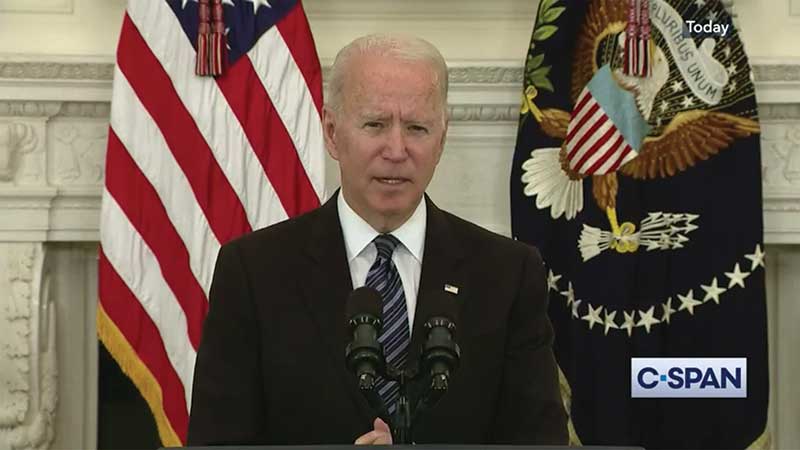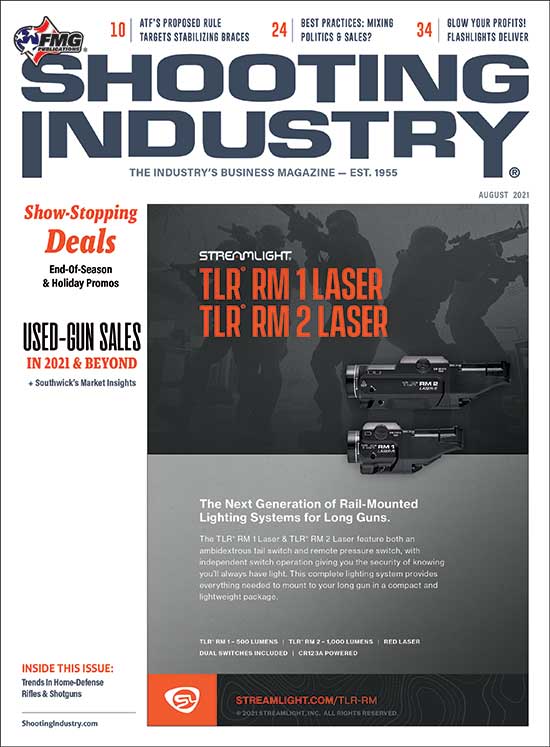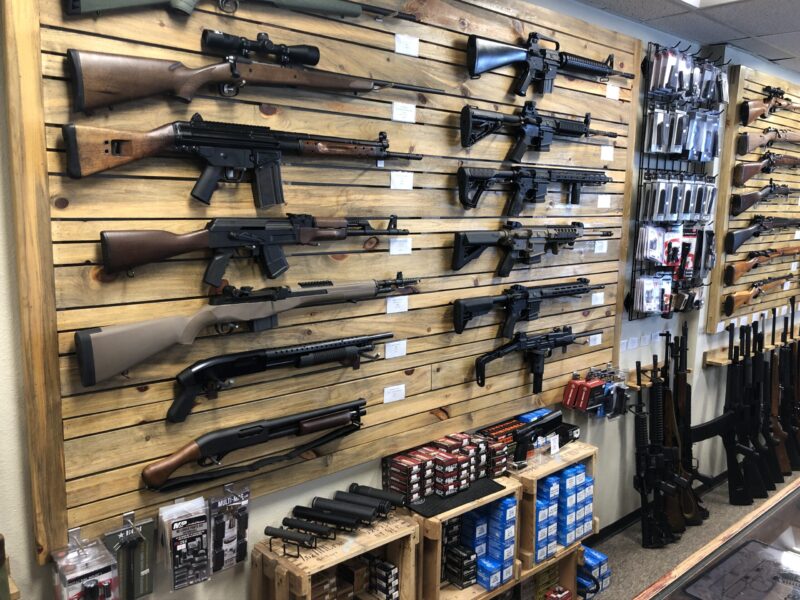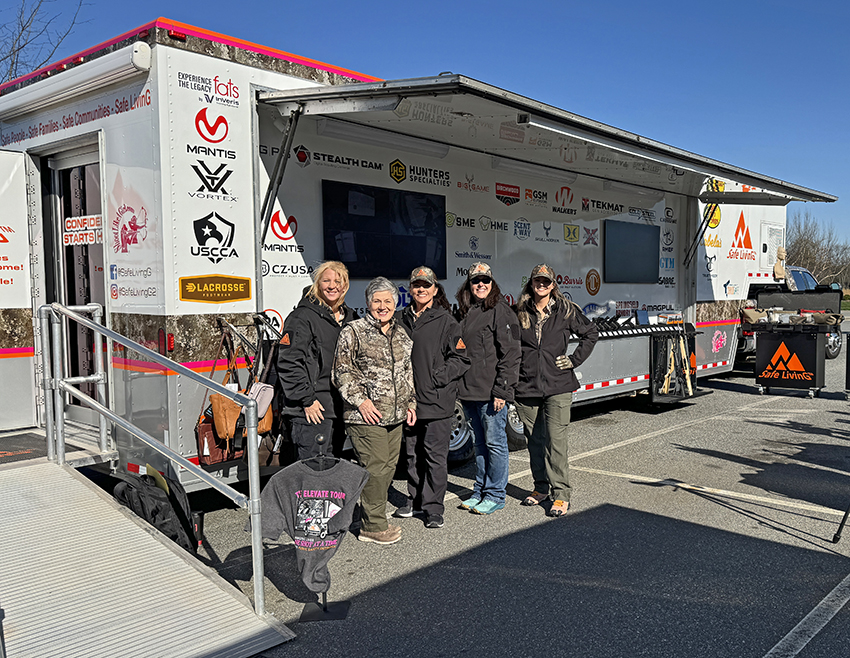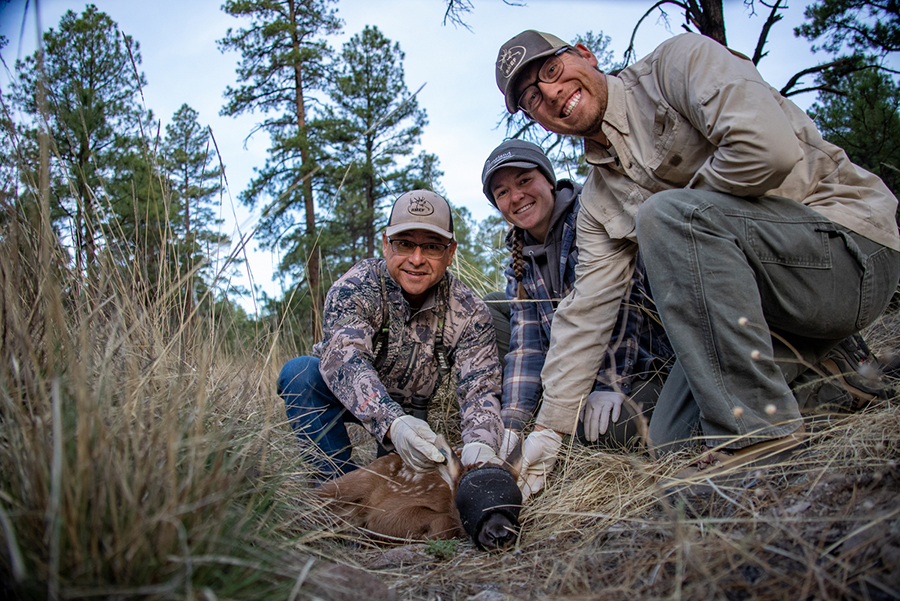The Thing About
Divided Houses …
Since publishing a three-tiered look at the ammunition market in Shooting Industry’s June issue (“Where’s All The Ammo?) on how manufacturers, wholesalers and dealers are handling the demand surge, I’ve received a barrage of emails from both dealers and manufacturers. I’ve heard everything ranging from praise of our coverage to criticism we didn’t “do enough” to hold manufacturers “accountable” and even questions asking why we didn’t put the muzzle on dealers’ perspectives. It’s not an easy place to be, but the fact we’re getting such vocal feedback is indicative of just how volatile this topic is — and readers care about what they see in the pages of SI.
I had a recent conversation with an executive from a company with deep ties to the reloading market, and he lamented the current state of division festering in the industry. He’s got a point: Rather than being united in our efforts to counteract the work anti-gun/industry organizations, politicians and mass media are doing to ban our businesses, we’re too busy infighting.
Some dealers are pinning the blame on manufacturers for empty shelves, while manufacturers are getting hit by wild rumors from consumers and even from dealers who are overordering and then cancelling those orders once they receive a shipment from another source. It’s absolute chaos.
“Typically, the guy who calls his suppliers irate and demands products will not get the response a dealer may get if he has positive conversations about the issues in the supply chain.”
Clay Ausley, Owner Fuquay Gun, Fuquay-Varina, N.C
One thing to help smooth tensions during unprecedented times like this is playing the long game — relationships are essential to success. In words that almost seem prophetic now, Clay Ausley of Fuquay Gun in Fuquay-Varina, N.C., shared his 2021 prediction with us back in December.
“Relationships will be so important in 2021. This is still a small industry and we must remember that,” he said.
“Typically, the guy who calls his suppliers irate and demands products will not get the response a dealer may get if he has positive conversations about the issues in the supply chain and how he may get more product. Much of the groundwork to build relationships is done when business is slow — which should have already been done in years past. Many suppliers remember who was buying in the slow times and tend to help those accounts when supply is tough. One hand washes the other, so to speak.”
Much, much easier said than done: Better communication across the supply chain will help ease some tensions. We’re going to continue giving dealers and manufacturers an opportunity to address their shared concerns in future articles. Want to have your voice heard? I welcome your feedback: contact me directly at editor@shootingindustry.com.
As temperatures rise this summer, it’s my hope cooler heads will prevail. We all know what happens to divided houses.
Dealers Respond To Biden’s “Merchants Of Death” Jibe
June 23, President Biden and U.S. Attorney General Merrick Garland hosted a “Gun Crime Prevention Strategy” presentation at the White House. During the discussion, Biden didn’t miss the opportunity to link storefront dealers and the firearms industry to increased crime figures. In a grandstanding moment, Biden announced a “zero tolerance” policy for dealers who knowingly violate laws by selling firearms to criminals.
“These merchants of death are breaking the law for profit. They’re selling guns that are killing innocent people. It’s wrong. It’s unacceptable,” he said. “We’re going to crack down on those gun dealers and the violent criminals they knowingly arm.”
In truth, this shouldn’t be newsworthy, as storefront dealers are on the front lines of a highly regulated industry — and therefore invest significantly in compliance efforts. What’s troubling is Biden’s mischaracterization of dealers selling firearms to criminals as a widespread practice.
Jacquelyn Clark, owner of Bristlecone Shooting, Training & Retail Center in Lakewood, Colo., offered her take on the president’s assessment.
“We, and dealers across the country, are out there focused on educating, preserving life and ensuring safety. Where does anyone have the right to call us the bad guys?”
John Phillips, Founder Poway Weapons & Gear
“To me, his comments make it seem like it’s commonplace for dealers everywhere to skirt the rules and look for ways to not comply — all in the name of profit. It sounds like the sentiment is these ‘bad’ dealers are everywhere and the government will conduct a witch hunt to find them, in volume enough to reduce crime in a visible way on the streets.”
Clark shared Bristlecone devotes a significant amount of resources to maintain compliance.
“I’ve never run across a dealer who doesn’t take compliance seriously,” she added. “The amount of resources we allocate each year to ensuring we’re compliant with all ATF regulations, checking our staff’s work, filing, etc., compared to the amount of money we make on the guns we sell makes it (firearm sales) almost not worth it.”
John Phillips, founder of Poway Weapons & Gear in Poway, Calif., expressed his disappointment at the president’s remarks.
“I’m a retired federal agent and veteran, and to have a career politician call me a ‘merchant of death’ is offensive and asinine. The majority of those who work in our industry are retired law enforcement or military veterans — so it’s really disappointing for someone to label our industry in this way,” he said.
Countering Biden’s perception of storefront dealers, Phillips highlighted their role in elevating safety.
“Over the past 5–6 years, our range has taught over 50,000 students how to be safe with firearms. How many lives has that saved? We, and dealers across the country, are out there focused on educating, preserving life and ensuring safety. Where does anyone have the right to call us the bad guys?”
In the first six months of his presidency, Biden has made his anti-gun/anti-industry intentions clear and continues to demonize firearms owners, dealers and manufacturers.
To stay up to date on other developments impacting business, sign up for Shooting Industry’s weekly Dealer Advantage email at shootingindustry.com/category/dealer-advantage.
NICS Checks Through First Half Of 2021
Jan. 1–May 30, 2021 recorded the strongest start to a calendar year on record in terms of NSSF-adjusted background checks, totaling 8,501,879. Though June 2021 represented the second-most prolific June in the history of the NICS system (with 1,279,300 checks), it was no match for June 2020’s total of 2,177,586 — resulting in a year-over-year (YOY) decrease of 41.3%. As a result, Jan. 1–June 30, 2020 remains the best start to a calendar year with 10,292,725 NSSF-adjusted NICS background checks.
Under “normal” circumstances, a YOY decline in excess of 40% would be cause for concern, but June 2020 was a month unlike any other — marked by widespread social unrest and calls to “defund the police” centered around the George Floyd protests. Likewise, the last YOY drop to exceed 40 points was impacted by political events. Jan. 2014, background checks fell 45.8% from Jan. 2013 (970,510 from 1,790,154). President Obama signed 23 executive orders to “prevent gun violence” Jan. 16, 2013 — which then spurred a several-month run of elevated firearm sales.
As long as President Biden continues to vilify firearms manufacturers, dealers and gun owners, sales are likely to remain brisk. One drawback to the hyper-political nature of firearms sales, according to Karl Heidmann of Freedom Arms Inc., is consumers are conditioned to only buy during these periods.
“The political rhetoric has absolutely fueled uncertainty and fear, both of which influence demand in a positive way, albeit from a negative motivation. We now have a whole generation who has been trained to buy firearms and related accessories only out of a motivation of fear and panic, and to stock up on and horde rather than to research, purchase, collect, shoot, hunt, train and enjoy being involved in the shooting sports and other shooting or gun-related activities. This is why the industry was stagnant during the Trump administration,” he observed.


